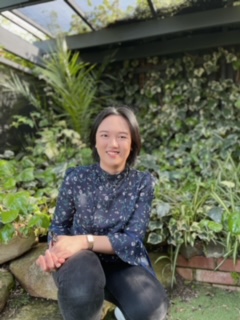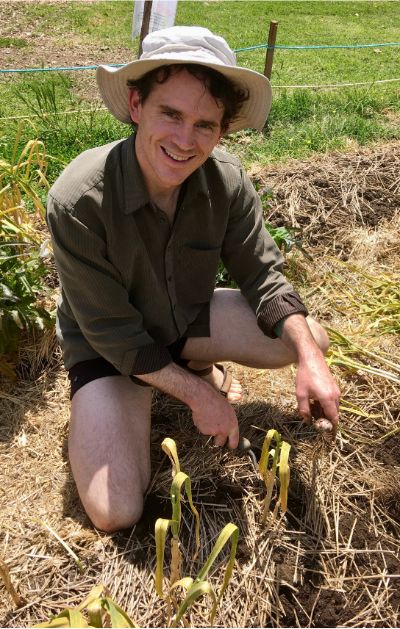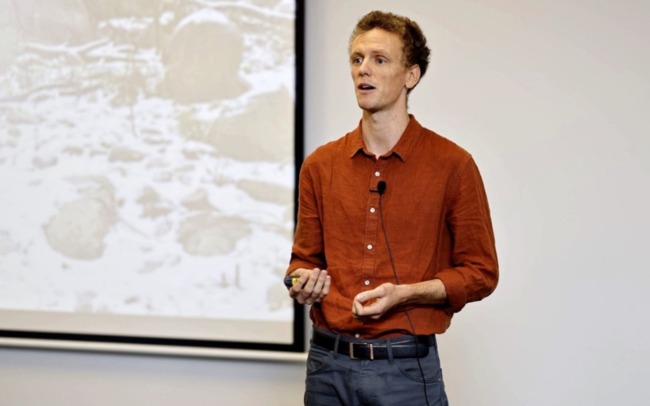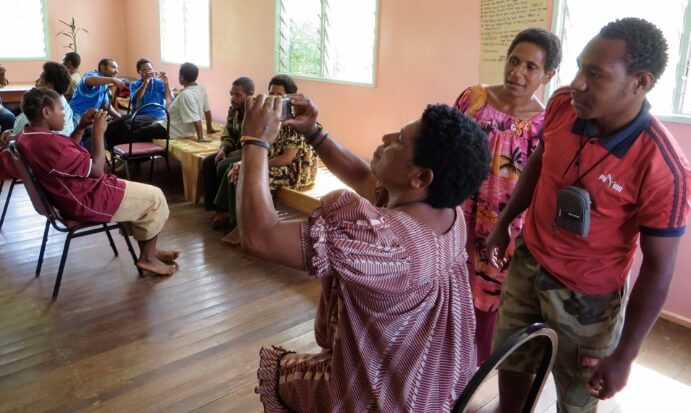Study with the CSC
The Centre supports a comprehensive mentoring and research development program for research students.
Students who are members of the Centre have opportunities to participate actively in the Centre's activities, including professional and career planning workshops, professional and research seminars, reading and writing groups, and special events.
The Centre supports a comprehensive mentoring and research development program for research students.
Students who are members of the Centre have opportunities to participate actively in the Centre's activities, including professional and career planning workshops, professional and research seminars, reading and writing groups, and special events.
Potential candidates can consider enrolling in a research masters or PhD. Click here to browse available supervisors at the CSC.
Information about the research degrees available and applying can be found on the Future Research Students website.
For general enquiries about the Faculty of Education HDR program please contact the Associate Dean of Research - Higher Degree Research, Dr Eleni Petraki: EducationHDR@canberra.edu.au
| Student | Research |
|---|---|
| Margaret Appel | Transformation abroad for culturally responsive teaching. |
| Jocelyn Perry | Examining the Intersections of Context and Capacity Development: The complexities of addressing violence against women in Thailand |
| Vivienne Haines | A better understanding of research needs of people with Multiple Sclerosis |
| Natalie Downes | Mapping Rural (Education) Fields |
| Emily Regan | The intersection of risk, play and learning in adolescence. |
| Monty Nixon | Reinvigorating Country as Teacher in Outdoor and Environmental Education |
| Mali Wijesundara | N/A |
| Bill Bostle | Stones in the passway: can community-supported refugee resettlement in regional Australia provide sustainable alternatives to institutional policy and practice? |
| Meagan Pearse | The Impact of Teacher Sex and Gender stereotypes on Music Education for Adolescent Males |
| Emily Hills | Teacher Biographies & Asia Literacy: A Narrative Inquiry in the Secondary English Classroom |
| Amber Piper | An exploration of teachers' conceptualisations and implementation of Social and Emotional Learning (SEL): A multiple-case study of seven Australian primary teachers |
| Arwa Ali M Alharbi | Investigating the potential for implementing family-centered practices for children with intellectual disability in primary schools in Saudi Arabia: listening to the experiences of families and cross-disciplinary professionals |
| Sally Rule | The PLC Imperative: how schools navigate the dynamics of systemic and school-based demands in PLC implementation. |
| Jessica Halupka | Investigating the implementation of Belonging, Being, Becoming: The Early Years Learning Framework for Australia from a multi-stakeholder perspective |
| Kerry Woodward | Food Networks Beyond Growth |
| Bianka Dyson | How Has Covid-19 Impacted the Wellbeing of Nine Teachers from Three Non-government Schools in the Hunter/New England Region, New South Wales? |
| Genevieve Tan | Would the usage of storybooks that explicitly teaches self-regulation strategies within a shared-book reading intervention context to enhance intervention efficacy of at-risk children with language delays/disorders? |
| Shang Fuentes | Improving the Methods and Impacts of Agricultural Extension in Conflict Areas of Mindanao, Philippines |
| Amy Dennis | Exploring teachers’ understanding of the personal and social capability in the secondary school STEM environment |
| Christine Dimmer | An analysis of recovery and resilience projects following the 2019/2020 bushfires on the east coast of Australia - Local responses to the disaster and what can be learned from them. |
| Kira Dowling | I am interested in looking at the case of self-transcription tasks for noticing and reflection among migrant and refugees learners of English. It appears I have to reduce this section to 50 words now, so the rest has been removed. |
| Christopher Morrissey | A School-University Partnership Based Approach to Preservice Teachers Professional Experience |
| Christopher De Britt | Optimising the Power of Learning Analytics: Leading purposeful connections between learning analytics and learning sciences towards more informed, individualised and impactful teaching and learning practice |
| Dylan Hunt | Teacher efficacy and student perceptions of relationships and sexuality education in secondary school settings |
| Cynthia Avoada | Rural Education in Ghana |
CSC HDR Spotlight: Genevieve Tan

| What is the focus of your PhD? | My research looks into Speech-Language Pathologists' (SLP) knowledge of and experiences with self-regulation. In recent years, there is a growing interest amongst Speech-Language Pathologists (SLPs) in the construct of self-regulation and its potential role in Speech Pathology interventions due to the increased complexity of clientele. There is an increasing number of children with co-occurring challenges such as self-regulation and behaviour needs. Yet, there is little research done in the realm of self-regulation through the lens of a SLP. My research hopes to first gain an understanding of SLPs knowledge of self-regulation and experiences with clients who face self-regulation challenges. On the basis of this knowledge, I will then aim at examining the impact of professional learning based on a specific implementation science framework (Knowledge-to-Action) on SLPs knowledge base and practice. |
| What activity/event are you most looking forward to? | Working with relevant stakeholders (teachers, speech pathologists and other service providers) to gain a more holistic viewpoint of self-regulation. |
CSC Spotlight: Kerry Woodward

| What is the focus of your PhD? | My PhD explores how care is practised on vegetable farms and what this means for the health and wellbeing of people and planet. |
| What is the best part of your PhD? | Reading and thinking. The PhD journey has been tough going at times, but my perception of what it is to exist and how worlds come into being has fundamentally changed as result of having the time to read and think with philosophy and theory. It is a liberating feeling and I doubt that I would have had the chance to engage with so many ideas on a (reasonably) deep level if I hadn't undertaken a PhD. |
| What activity/event are you most looking forward to? | Submitting my thesis. |
CSC HDR members at UC Research Festival
The CSC’s HDR members were active participants at this year’s UC Research Festival, a two day event that showcased University’s connection to Canberra and celebrated the impact of some of our successful university-industry partnerships within Canberra and the region.
Monty Nixon, a PhD student and Research Assistant for the CSC’s Country as Teacher project, was one of our most active contributors during the festival. Monty spoke at two sessions during the week, speaking on behalf of his research team about their recently published paper at the Hot off the Press session and about his own work during the HDR Bazaar. Both presentations were centred on the importance of creating more environmentally conscious educational practices through engaging with Indigenous ways of being, knowing and doing.
The Country as Teacher project (the first iteration of which drew to conclusion late last year and is now in a second, expanded body of research) demonstrates the transformative nature of students and teachers having direct experiences learning via ‘Relating with Country’. This educational practice helps foster reciprocity between humans and Country, a way of learning practiced in Australia for thousands of years. Monty’s PhD explores how this approach can be applied in Outdoor and Environmental Education. Both sessions provided opportunities to engage with interesting discussions about the long-term future of the projects, particularly the importance of ‘slow growth’ to ensure the integrity of the work.
CSC HDR members were also inquisitive and supportive audience members at the festival, including at sessions where their peers were presenting their PhD research to academics from across the university. They joined Kerry Woodward, another CSC HDR member, who presented his research on Food networks beyond growth at the Faculty Three Minute Thesis (3MT) heats.
This year’s festival provided an excellent opportunity to hear about the work across the university, building relationships and sharing discussions about future collaborations. Our HDR students welcomed the chance to present in a welcoming environment and build confidence in future conferences.

Monty Nixon
3 Minute Thesis finals
The CSC’s very own Natalie Downes won the hearts of the people at the University of Canberra’s 3 Minute Thesis finals.
On the 25th of August five of UC’s brightest Doctoral Students battled it out in the 3-minute thesis competition (3MT) for a total prize pool of $7,000 for their research.
The international competition is an opportunity for PhD students to promote their research. Before arriving at the night each candidate competed in Faculty wide heats in July.
On the night the CSC’s Natalie Downes won the people’s choice award and finished runner up on the night by posing the provocative question "Is geographical narcissism creating rural education disadvantage?" The tool developed in her work provides evidence-based alternatives to city biases that will transform the way we represent rural places in education. This contributes towards achieving more just and equitable outcomes for rural kids in schooling.
A big congratulations to Natalie and everyone that presented on the night!
Click here to watch the presentation.
Knowledge & Rurality: Deconstructing Geographic Narcissism in Education - Natalie as a PhD student
March
Hosted by the Rural Education, Curriculum and Communities Research Group.
Symposium Overview
This symposium examines the traditional questions of curriculum inquiry from the perspective of the rural – what and whose knowledge is of most worth? By doing so we interrogate the assumptions about rural education disadvantage. We also highlight the role rural knowledges may have in challenging these educational deficits in the interests of rural community futures.
Presentations
Dr Jenny Dean
The spatial implications of academic achievement in Year 12: Rethinking discourses of disadvantage in rural locations
Ms Natalie Downes
In space no-one can hear you scream: The absence of rurality in Australian Education Research
Professor Mike Corbett
Visiting Scholar, Acadia University, Canada
Place-Based Education: A Critical Appraisal from a Rural Perspective
Associate Professor Philip Roberts
Knowledge beyond the Metropole: Curriculum, Rurality and the Global South
Details
Time: 22nd March 4pm-5:30pm
Afternoon tea included
Location: University of Canberra, 2B07
RSVP: 17th March
RSVP LINK
Country as Teacher: End of project symposium and publications - Monty as PhD student
The Country as Teacher Project is a formative exploration of how Indigenous pedagogies might be taken-up as part of mainstream schooling for all Australian students.
The project, funded by the Affiliated Schools Research Network, has worked with 26 teachers across four ACT schools over the past two years. This first iteration of the project is drawing to a close with the research team: David Spillman, Ben Wilson, Katharine McKinnon and Monty Nixon, recently publishing their emerging findings in Curriculum Perspectives under the title Reinvigorating Country as Teacher: beginning with school teachers' direct experiences, ‘relating with Country’. Through thematically weaving together participants' experiences, the article demonstrates both teachers’ capacity to build and the transformative nature of a ‘relating with Country’ practice. The article outlines the transformative nature of relating with Country, resulting in participants growing gratitude for and learning about, from and how to care for Country.
To celebrate the project and share the emerging findings, the CSC helped host an end of project symposium which brought together keynote speakers, guest stakeholders from the Department of Education, educators from across schools and the University. The symposium was an opportunity to share knowledge and build strong relationships, growing the community of research. The research team is hopeful this community will help foster the growth of the Country as Teacher approach in future projects.

CSC and Communities Economies 2022 Collaborations - Shang Fuentes as a PhD student
November
The 2022 Community Economies annual online conference was run in early November. The conference drew together individuals from across the international Community Economies Research Network (CERN). CERN is concerned with collaboratively building research and practice that bring about more sustainable and equitable forms of development by cultivating and acting on new ways of thinking about economies and politics. The conference, titled Liviana, is a series of events that are based on the sense of openness, free-floating train of thought, and cheerful spirit that the Spanish term connotes.
This year CSC members Dr Ann Hill and Shang Fuentes played a role in leading trains of thought in several sessions. Dr Hill helped facilitated an event celebrating and recognising the value of grassroots models of learning for more sustainable futures. HDR student Shang Fuentes also shared her key learnings from the Communities Economies summer school in discussion with her peers in one session and reflected on the question of scaling up communities’ economies in another. Both also spoke at the Community Economies Current Research in Asia session where they discussed their recent book chapter Asset-based Community Development in diverse social cultural contexts focusing on its application in Fuentes' PhD research.
Congratulations to everyone involved in the organising and running of the CERN events! To find out more about CERN, or watch previous Liviana sessions follow this link.

New CSC Monograph: Re-framing the role of ‘Youth’ with a strengths-based approach - Jocelyn Perry as a PhD student co-author
October
The October CSC monograph explores the role that youth can play in low- and middle-income countries in significantly contributing to world-wide food and nutrition security, using the example of Papua New Guinea (PNG). The recent volume, co-authored by Pamphilon, Caffery and Perry, is written for development practitioners interested in understanding, harnessing and developing the strengths of youth living in agricultural settings.
The monograph problematises current framings of youth in development literature as ‘risks’ or ‘problems’. Drawing on PNG data, the authors show how a strengths-based approach can inform program design and highlight that talking, listening and learning from young people themselves is vital to building effective strengths-based approaches.
Read the full monograph here.

International Emerging Rural Scholars Summit - Natalie as a PhD student
September
In September, Rural Education, Curriculum and Communities team members participated in the International Emerging Rural Scholars’ Summit (IERSS) hosted by the University of Melbourne.

Associate Professor Philip Roberts presented the keynote address titled ‘The Importance of Theory in Rural (Education) Research'. This covered a range of issues including why and how theory shapes our research work, how it helps challenge inequities in education, why theory matters in education research, how theory has shaped the rural education research field, and examples of theory in education research.
Natalie presented a lightning talk titled ‘Researching the field: Building a framework for rural education research’ which focused on her PhD work and the development of a framework that draws on understandings of education and rurality from different fields of research. The framework aims to develop capacity to challenge notions of disadvantage that dominate rural education research.
Philip and Natalie also participated in a panel titled ‘Ethics and rurality: Why does it matter?’. This panel discussed the unique ethical considerations of rural education research. These include considering how space, place, and rurality may impact on the design, funding, implementation, and reporting of research. The panel emphasised the importance of expanding our thinking about ethics beyond institutional ethical approval processes towards understanding the benefits or harms that may occur due to how we value rural people, places, communities, and lived experiences in our research.
The IERSS was initiated in 2018 and is hosted by different universities around the world every year. It is a key event in the rural education research calendar for emerging scholars.

